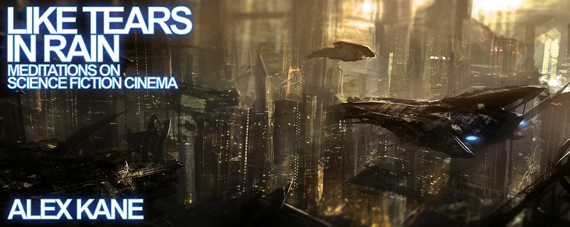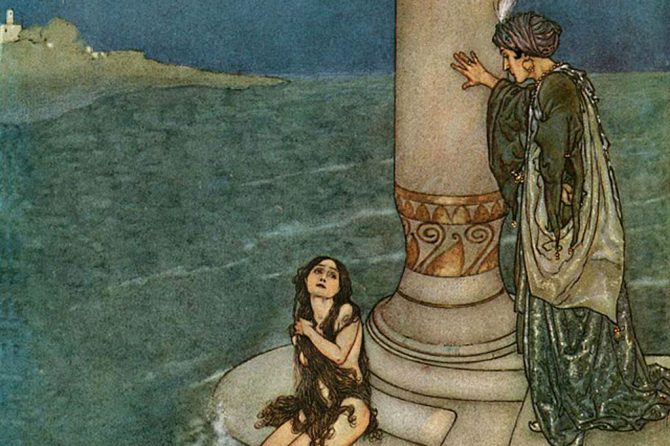
According to my extensive academic research over at Wikipedia this afternoon, the third installment in Fox’s Alien Quadrilogy (’Cause why use the word tetralogy, right? What a lousy word . . .) went through development hell for several years, and despite the criticism it’s received since from longtime fans and critics alike, it should’ve ended up a much worse film than we actually ended up with.
It ain’t as good as Scott’s original classic, granted, or Cameron’s ’86 sequel Aliens—nor as good as Prometheus, which I happened to enjoy a great deal—but it’s sure as hell better than that money-grab atrocity dubbed Alien Resurrection.
But I’m building up a modest library of Blu-ray films, including Alien and its first two sequels, and I couldn’t resist the chance to finally revisit David Fincher’s directorial debut, over ten years later.
Now, for some reason, I’d gotten it into my young head long ago that Alien 3 wasn’t worth my time; that it was dismal and offensive and, well, trash. Like that friggin’ stinker Resurrection, I guess. But that really isn’t the case — it’s actually quite a decent film, when you overlook its status as a lackluster sequel to two of the most beloved science-fiction movies of the twentieth century.
(This is a phenomenon I usually refer to as Raiders Syndrome: Even if Indiana Jones and the Temple of Doom had been a masterpiece of cinema, far superior to the original, it still would’ve had its detractors, swearing up and down that it wasn’t as good as Raiders.)
It lacks the “science” element that you’d prefer to find in a film with a title like Alien 3, granted, but when viewed as a standalone horror film, it’s not all that bad. Really. It’s got most of the trademark Fincher-isms that we recognize from such great pictures as The Girl with the Dragon Tattoo, Se7en, Zodiac, and Fight Club: moral ambiguity, (incredibly) flawed characters, visceral grit, existential atmosphere, and an unflinching gaze at the hostility that exists in our world (universe?), like it or not. Excellent cinematography, too, if one can forgive the lack of screen time allocated to the creature itself and the primitive CGI employed in bringing it to life.
(Note: Over ten years ago, the first time I saw the film, I watched the 1992 theatrical release on VHS. This time around, I opted for the 2003 studio “Assembly”/Special Edition extended cut of the film, in stellar Blu-ray high definition. The extended cut does more than toss in additional footage to flesh out the inmate characters; it also harms certain key plot points from the original, such as the origin of the quadrupedal alien variant, and the chest-bursting scene that made the ending so dramatic the first go-round. Watch ‘em both, when you can, but go with Fincher’s 1992 cut the first time you watch the film.)
Despite it being not-that-terrible, however, Alien 3 catches a lot of flak for being, well, less than great. In the scope of the first three installments of the franchise, yes, it’s a disappointment . . . but for anyone who’s seen Alien vs. Predator, AvP: Requiem, or Alien Resurrection, Alien 3 really ought to seem like a goddamn masterpiece. . . .
So what exactly can we learn from it?
Quite a bit, I’d argue. To wit:
When you’ve got a successful series going over the course of decades, it’s tough to maintain relevance and originality after early, major successes. Oftentimes an idea is examined to the point that it ceases to be interesting, and eventually you start repeating yourself.
Perhaps, as with the example of Scott’s Prometheus, it’s best to pack up your toolbox and go build something new, something bigger, rather than continuing to tinker with past successes. Audiences are hard to please as it is, let alone when they come into an experience with overly high expectations.
Tone, mood, and intensity should waver slightly over the course of a single film, but not within the scope of a four-installment series—movies, films, games, comics, whatever—unless there’s good reason to do so. You’ve gotta give us a glimmer of hope somewhere in all that unrelenting despair.
Having every character but your protagonist be a rapist-murderer, with whom the audience is supposed to sympathize, is risky as hell. Fincher can pull it off, I think . . . but after a film like Aliens, where Cameron established a clear divide between who and what is good and who the bad guys are—corporate slime-balls and aliens on one side, marines and civilians on the other—it’s hard to pull off a spectrum of gray, gray, gray.
Also, I can’t understate the importance of keeping primary characters—good, heroic characters as well as innocent children—alive unless the story absolutely demands that they be killed. I’m not spouting dogma here, but as novelist Alan Dean Foster opined of the film, the deaths of Corporal Hicks and Newt are obscene. Neither character deserved to die; both fought valiantly to survive the preceding film; and audiences loved them.
In Fincher’s world, as with our world, even the innocent are occasionally made to suffer. But in art, it’s also necessary to be aware from a creative standpoint what kind of reaction a character’s death will elicit from the audience.
In other words: Don’t kill everybody’s favorite character, unless you want to piss off your audience—or to try and make a profound point through martyrdom, which is rarely done well on the big screen. And please, for the love of all things sacred and Giger-esque, don’t have an on-screen autopsy performed on a ten-year-old girl in your film, bloody bone saws, exposed chest cavity, and all. Jesus, that’s just gross.











I should clarify: I didn't *hate* Alien vs. Predator; just its unwatchable sequel, Requiem. And the related film PREDATORS, which I failed to mention at all in the post, is actually a pretty competent piece of filmmaking (likely due to the involvement of Robert Rodriguez, who has something of a Midas Touch, in my opinion).
Not sure why Prometheus gets the amount of hate that it does, but I will concede that it does have its flaws–some bigger than others. Still, I like it.
AVP was a lot better than Requiem, I concur. And yeah, Predators was ok! I'm a Robert Rodriguez fan in general.
I can go on and on about the flaws of Prometheus. Basically, it made so many that partway through the movie I could no longer forgive them and just started stewing about how much it sucked and kept seeing more and more. That's the cardinal crime of story-telling — knocking the audience out of the suspension of disbelief, and Prometheus committed it.
I don't know if he intended it to feel nihilistic, because there certainly are moments of "escape," or at least a kind of fleeting peace, but the overall tone of the film pretty much FEELS that way.
It's grown on me–hated it as a kid, but enjoyed it on Blu-ray, possibly as a result of my low expectations.
I really need to rewatch the theatrical cut, to see how much of the ending (particularly with the Bishop/Weyland-Yutani characters) is missing in that shorter version. The "Assembly" edition seemed to make a lot more sense, from what I can remember of the original, but I disliked the omission of the chestburster, the change of the creature's birth from dog to cow, etc.
It's a dark, dark flick, but it ain't all that bad. Scott and Cameron are just tough acts to follow.
I find Prometheus with too many fundamental flaws to put it above Alien 3, even though the former is a great-looking piece of film making.
I agree with a lot of the criticisms of Alien 3 above, and agree very much with how our spectrum has become gray (reflected in the look of the movie) and that Hicks and Newt's deaths was an abomination that casually undercut the previous and superior movie (in much the same way Search for Spock undercut Wrath of Kahn, but in the reverse).
There are definite flaws in pacing, character development, and plotting, in my opinion…but none as bad as many in Prometheus.
Did I mention how flawed that movie is?
And finally, I have to agree that in some ways the greatest crime of Alien 3 is just not being in same league as Alien or Aliens, and it is the mark of a series sliding out of the hands of a couple of the top masters in the field, into just a money-making franchise that can be handed to the next set of writers/directors in line. Alien 3 was a lot more ambitious than the things that came after, and I use the term "things" intentionally, even though I think I didn't hate AVP or Aliens: Resurrection as much as you!
I guess this is inevitable. We have the Terminator series, Batman, Superman, X-Men, etc., all having a few great movies with some great creators, and then being passed on to others who are unlikely to match their predecessors heights purely for statistical reasons, even if they are talented in their own right. The studio must be fed. It's like asking for Chef Ramsey's students to keep making variations on his original dish, and then each others, and hoping that they will all be as good as the original. It just doesn't happen very often.
The autopsy was THE most harrowing part of the film for me. Alien 3 replaced the sense of "cosmic horror" established in the first two films with a sort of nihilistic existentialism. Instead of giving the viewer any kind of cathartic release, Fincher seems to want to leave us with the desire to go home and slash our wrists.